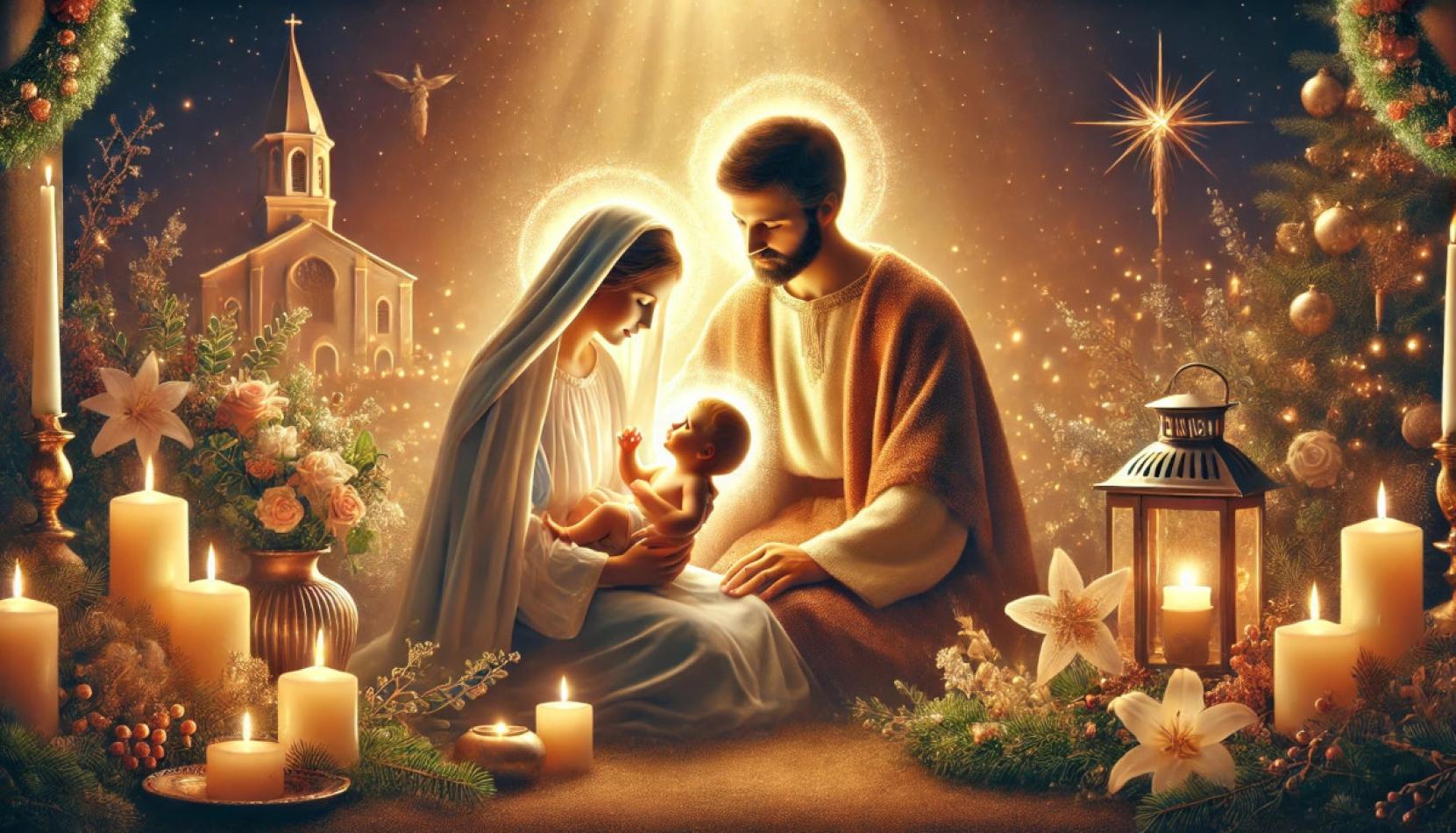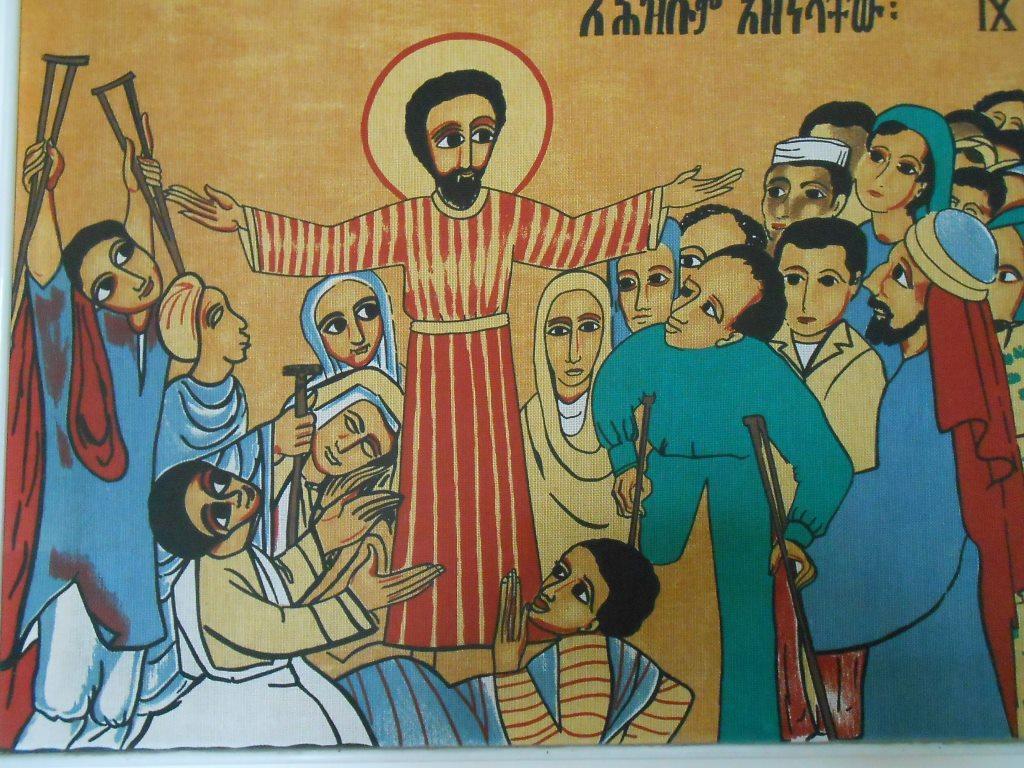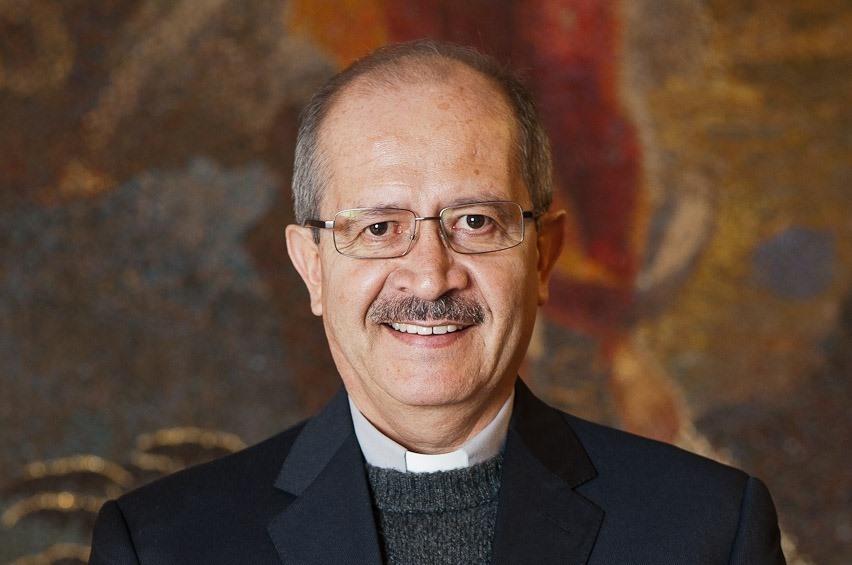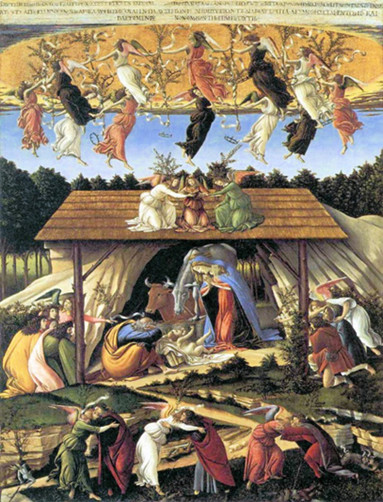Daniel Comboni
Comboni Missionaries
Institutional area
Other links
Newsletter
Christmas 2024
What will our next Christmas be like? Hard to know! We can certainly wish it to be marked by peace, full of joy and a harbinger of serenity. But it could also be very different and taste more like a stable and a manger than heaven. But it matters little: the important thing is to allow ourselves to be transformed by the mystery of the coming of the Word in the flesh (cf. Jn 1:14), asking the Spirit to help us ‘hear’ this Word, which will always have the form of the wailing of a newborn baby, and to welcome with faith the Saviour of the world, who will always have the fragility and weakness of a child. [...] To all of you our best wishes for a Merry Christmas. (The General Council)
Christmas is Mission
Dear Confreres,
Every time Christmas comes, and we reflect on this event of salvation, we are moved by the humility of the Son of God in the manger: “God so loved the world that he gave his only Son” (cf. Jn 1:13-17). And he does not choose as the place of his son’s birth a palace or a sumptuous palace, or even a simple dwelling; for him he chooses something more humble: a cosy shelter nook where, at night, the animals of the family are locked up. And so, the cradle of the Son of God is a manger. Jesus is born poor and among the poor!
As Comboni missionaries, it is vital for us to grasp the missionary character of Christmas. The sending of the Son is the first great mission. This God-child is the first missionary of the Father. He makes three departures: from the Father, renouncing divine glory; from himself (‘he empties himself’, ‘he annuls himself”, ‘he takes the condition of a slave’ – kenosis – Phil 2:7); and from the world, to return – risen and victorious – to the Father, with the intent of bringing us with him: “In my Father’s house there are many rooms […] I am going there to prepare a place for you... I will come back and take you to be with me that you also may be where I am” (Jn 14:2-3).
A Madness of Love
Madly divine is this way of salvation! And one must be ‘insane’ to take it for true. But true it really is! Once one enters into such logic, one feels projected into the discovery of truth. When opening the Ecclesial Congress in Florence in September 2015, Pope Francis stated: “Our faith is revolutionary because of an impulse that comes from the Holy Spirit. We must follow this impulse to come out of ourselves, to be men according to the Gospel of Jesus. Every life is decided on the ability to give itself away. It is there that it transcends itself and comes to be fruitful.”
The contemplation of this ‘child-who-has come-from-the-Father’ is essential for mission.
“The word of God constantly shows us how God challenges those who believe in him ‘to go forth’. Abraham received the call to set out for a new land (cf. Gen 12:1-3). Moses heard God’s call: “Go, I send you” (Ex 3:10) and led the people towards the promised land (cf. Ex 3:17). To Jeremiah God says: ‘To all whom I send you, you shall go’ (Jer 1:7). In our day Jesus’ command to ‘go and make disciples’ echoes in the changing scenarios and ever new challenges to the Church’s mission of evangelisation, and all of us are called to take part in this new missionary ‘going forth’. Each Christian and every community must discern the path that the Lord points out, but all of us are asked to obey his call to go forth from our own comfort zone to reach all the ‘peripheries’ in need of the light of the Gospel” (Evangelii Gaudium, 20).
What a World He Comes to!
This year, Christmas is celebrated amid war. The world is in a dramatic state: destruction, death, and violence are everywhere. Men and women are buried under the rubble of their homes, millions are displaced within their countries or seeking refuge in neighboring nations, elderly people are abandoned and without care, and children are caught in the chaos of their innocent daily lives.
Many of our confreres carry out their mission in similar contexts. To them go our thoughts and prayers.
Yet, the Lord Jesus is born again for us in a world so poor in dignity, if not devoid of it. Why? For the mystery of the love of a God who out of love becomes a child! This is a love we are called to ‘incarnate’ in the situations where we live, bearing witness to it and giving it substance through sharing, participation, communion, giving, and service.
We know – from direct experience – that it is often a love ‘at a high price’. But as followers of Comboni, a ‘fool’ who made the Cross his “friend”, “eternal and inseparable and beloved bride and my wise and prudent teacher” (cf. Writings, 1710; 1733), we are not discouraged, because we believe that our weakness paradoxically reveals God’s omnipotence: an omnipotence that has little power, of course, because it manifests itself only in our radical willingness to make ‘common cause’, and at whatever ‘cost’, with the people among whom we live.
Let Ourselves Be Transformed by Christmas
Our wish for a Merry Christmas this year translates into an invitation to ourselves and to all of you to allow ourselves to be transformed by the mystery that this solemnity celebrates.
What will our next Christmas be like? Hard to know! We can certainly wish it to be marked by peace, full of joy and a harbinger of serenity. But it could also be very different and taste more like a stable and a manger than heaven. But it matters little: the important thing is to allow ourselves to be transformed by the mystery of the coming of the Word in the flesh (cf. Jn 1:14), asking the Spirit to help us ‘hear’ this Word, which will always have the form of the wailing of a newborn baby, and to welcome with faith the Saviour of the world, who will always have the fragility and weakness of a child.
We close this letter with an enlightening passage from Dietrich Bonhoeffer, Lutheran pastor and martyr under the Nazi regime:
“God is not ashamed of human lowliness but goes right into the middle of it […] God loves the lost, the unnoticed, the unremarkable, the excluded, the powerless, and the broken. What people say is ‘lost’, God says is ‘found’; what people say is ‘condemned’, God says is ‘saved’ […] Where people turn their eyes away in indifference or arrogance, God gazes with a love that glows warmer there than anywhere else. Where people say something is ‘despicable’, God calls it ‘blessed’. When we come to a point in our lives where we are completely ashamed of ourselves and before God, […] that is the moment in which God is closer to us than ever, wanting to break into our lives, wanting us to feel the presence of the holy and to grasp the miracle of God’s love, God’s nearness and grace.”
We ask Mary to help us welcome Jesus as she welcomed him, and we ask her Son for the grace to let us be transformed by his coming.
To all of you our best wishes for a Merry Christmas.
The General Council
Messaggio di Natale del Consiglio Generale - NATALE e MISSIONE-francese
Messaggio di Natale del Consiglio Generale - NATALE e MISSIONE-inglese
Messaggio di Natale del Consiglio Generale - NATALE e MISSIONE-italiano
Messaggio di Natale del Consiglio Generale - NATALE e MISSIONE-portoghese
Messaggio di Natale del Consiglio Generale - NATALE e MISSIONE-spagnolo
Weihnachtsbrief - Generalrat - tedesco





